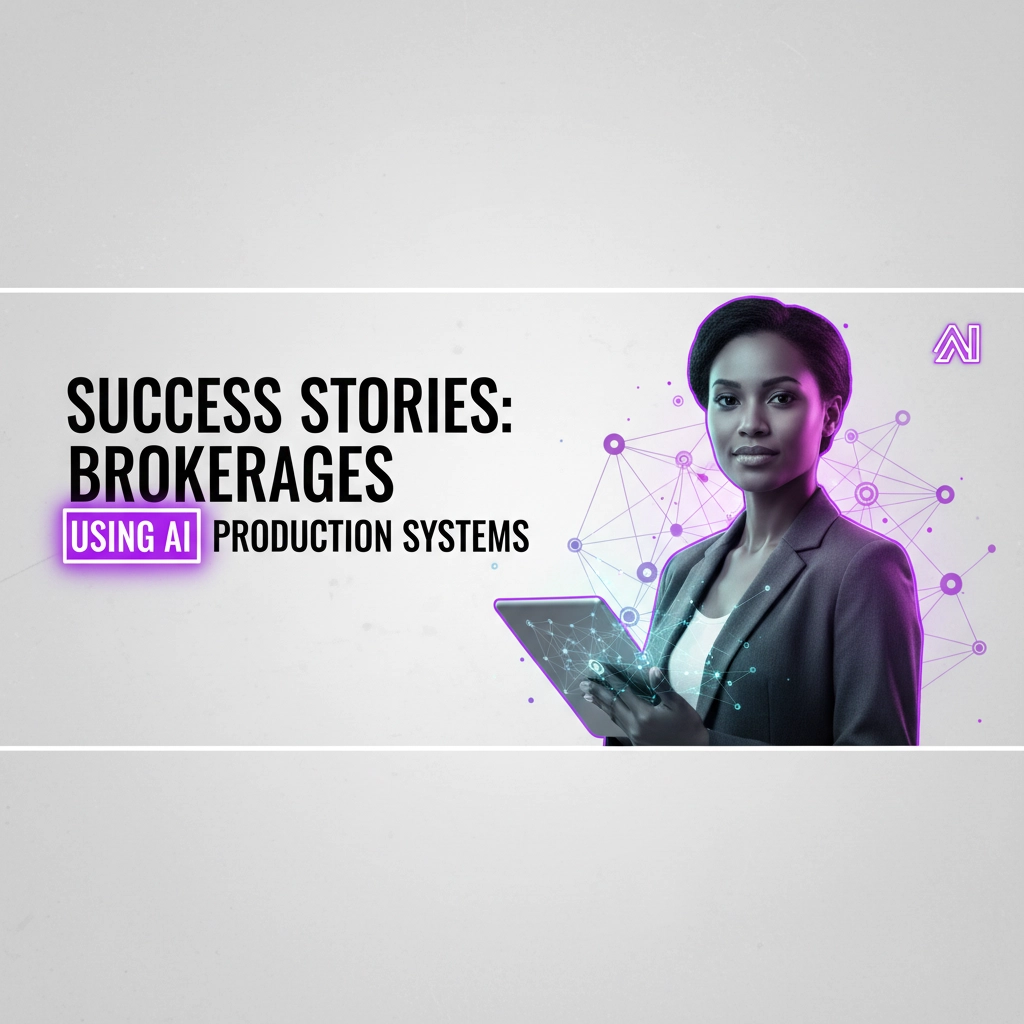The real estate industry is witnessing a seismic shift. With 50% of agents projected to leave the industry by 2025, brokers are scrambling to find training systems that actually work. The question isn’t whether traditional training is dead: it’s whether your approach has evolved with the market.
The Reality Check: What’s Actually Failing
Traditional training systems aren’t inherently broken. The problem lies in outdated content and delivery methods that ignore modern market realities.
Lead generation systems that worked in 2022 are delivering catastrophic results. Online lead platforms now convert at 0.2% over 24 months. Agents trained on these outdated methods are burning through marketing budgets with nothing to show for it.
Training programs focused solely on relationship-building without technology integration leave agents unprepared for today’s digital-first environment. Clients expect instant responses, data-driven insights, and seamless digital experiences.

The Hybrid Revolution: What Top Brokerages Are Doing
The most successful brokerages in 2025 aren’t abandoning in-person training. They’re enhancing it with technology.
Tech-driven brokerages like Compass, eXp Realty, and Side are redefining team management by embedding technology into every aspect of agent workflow. Their training programs combine face-to-face skill development with digital tool mastery.
In-person training sessions remain highly effective for building culture and community. Agents who physically show up tend to elevate faster than remote workers without structured support. But these sessions now focus on advanced skills while technology handles routine tasks.
The winning formula combines live coaching with digital performance tracking. Brokers can monitor agent progress in real-time and adjust training based on actual performance data, not assumptions.
Performance-Based Training: Moving Beyond Generic Programs
Generic training programs produce generic results. High-performing brokerages are shifting to performance-based training that addresses specific skill gaps identified through data analysis.
Modern training systems analyze agent activity patterns, conversion rates, and deal progression to identify bottlenecks. Instead of broad sales training, agents receive targeted coaching on their specific weak points.
This approach requires integrated systems that track agent performance across all activities: lead generation, follow-up, pipeline management, and deal closure. Without this data foundation, training becomes guesswork.

The Technology Integration Imperative
Technology isn’t replacing human skills: it’s amplifying them. The most effective training programs teach agents how to leverage technology for better results, not how to avoid it.
Successful agents in 2025 use AI-powered platforms to identify the highest-value activities for each day. Instead of working harder, they work smarter by focusing on tasks that directly impact their income.
Pulse Intelligence exemplifies this evolution. The platform provides agents with daily clarity on which activities to prioritize based on their personal goals and market conditions. This eliminates the guesswork that leaves many agents spinning their wheels on busy work instead of revenue-generating activities.
For brokers, this means training programs must cover both the human elements of real estate and the digital tools that make agents more effective. Agents need to master CRM systems, understand data analytics, and use AI insights to guide their daily decisions.
Continuous Development vs. One-Time Training
Traditional training often treats education as a one-time event. Agents attend a boot camp, receive their certification, and then operate independently. This approach fails in a rapidly changing market.
Effective training in 2025 is continuous and adaptive. Market conditions shift monthly. New technologies emerge quarterly. Legal requirements change annually. Training systems must evolve with these changes.
Top-performing brokerages implement ongoing professional development that covers new market trends, legal changes, technology updates, and advanced sales techniques. This isn’t optional: it’s essential for agent retention and performance.
The key is making continuous learning convenient and relevant. Agents won’t attend lengthy training sessions that don’t directly impact their results. But they will engage with bite-sized learning modules that solve immediate problems.

The Support System Revolution
Training alone doesn’t create successful agents. The support system surrounding the training determines long-term success.
Modern brokerages provide comprehensive support that extends beyond initial training. This includes ongoing mentorship, performance monitoring, and resource access. Agents need to know they can get help when challenges arise.
Technology platforms now enable brokers to monitor agent performance in real-time and provide immediate support when metrics decline. Instead of waiting for quarterly reviews, brokers can intervene when agents need help most.
This proactive support approach significantly improves agent retention. Insufficient training and support contribute to high attrition rates in real estate. Brokerages that recognize accomplishments, offer continuous learning opportunities, and maintain positive work environments keep their agents longer.
Cross-Functional Collaboration Training
Real estate transactions involve multiple specialties: marketing, finance, legal, and customer service. Traditional training often siloes these functions, leaving agents to figure out collaboration on their own.
Modern training programs include cross-functional collaboration. Agents learn to work effectively with marketing teams for listing promotion, coordinate with finance specialists for loan processing, and collaborate with legal experts for contract review.
This collaborative approach produces better client outcomes and higher agent satisfaction. Agents feel supported by a team rather than isolated as individual operators.
Measuring Training Effectiveness
Traditional training programs often lack measurable outcomes. Brokers invest in training without knowing whether it improves agent performance.
Effective training systems in 2025 include performance metrics and tracking. Brokers can measure training ROI through improved conversion rates, faster deal closure times, and higher agent retention rates.
The most sophisticated brokerages use integrated performance management systems that connect training activities to business outcomes. They know which training modules produce the best results and can optimize their programs accordingly.

The Implementation Challenge
Knowing what works and implementing it are different challenges. Many brokers recognize the need for modernized training but struggle with execution.
The key is starting with integrated systems that combine training delivery with performance tracking. Trying to cobble together separate solutions for training, CRM, and performance management creates inefficiencies and data gaps.
Successful brokers are choosing platforms that handle multiple functions within a single system. This integration enables seamless data flow from training activities to performance outcomes.
The Competitive Advantage
Brokerages with effective training systems gain significant competitive advantages. They attract better agents, retain them longer, and generate higher per-agent production.
In a market where agent attrition is accelerating, the ability to develop and retain talent becomes a crucial differentiator. Brokerages with superior training systems can recruit top performers and help average agents become top producers.
This competitive advantage compounds over time. As successful agents refer other agents and generate more business, brokerages with strong training systems grow faster than those without.
What This Means for Your Brokerage
Traditional real estate team training systems aren’t dead: they’ve evolved. The brokerages thriving in 2025 combine proven human development principles with modern technology platforms.
Your training system should provide continuous learning opportunities, integrate with performance management tools, and adapt to changing market conditions. Agents need both human support and technological capabilities to succeed.
The question isn’t whether to modernize your training approach: it’s how quickly you can implement systems that give your agents the tools they need to thrive in today’s market.
Ready to see how modern training systems can transform your brokerage performance? The integrated approach that combines human development with intelligent technology is already helping forward-thinking brokers build stronger, more profitable teams.
Schedule a demo to discover how the Brokerage Performance Suite can modernize your training approach and give your agents the competitive edge they need to succeed in 2025.






I really resonate with the idea of integrating technology into real estate training. Clients expect speed and personalization, which makes the old-school methods feel out of touch. The hybrid model really seems like the way forward.